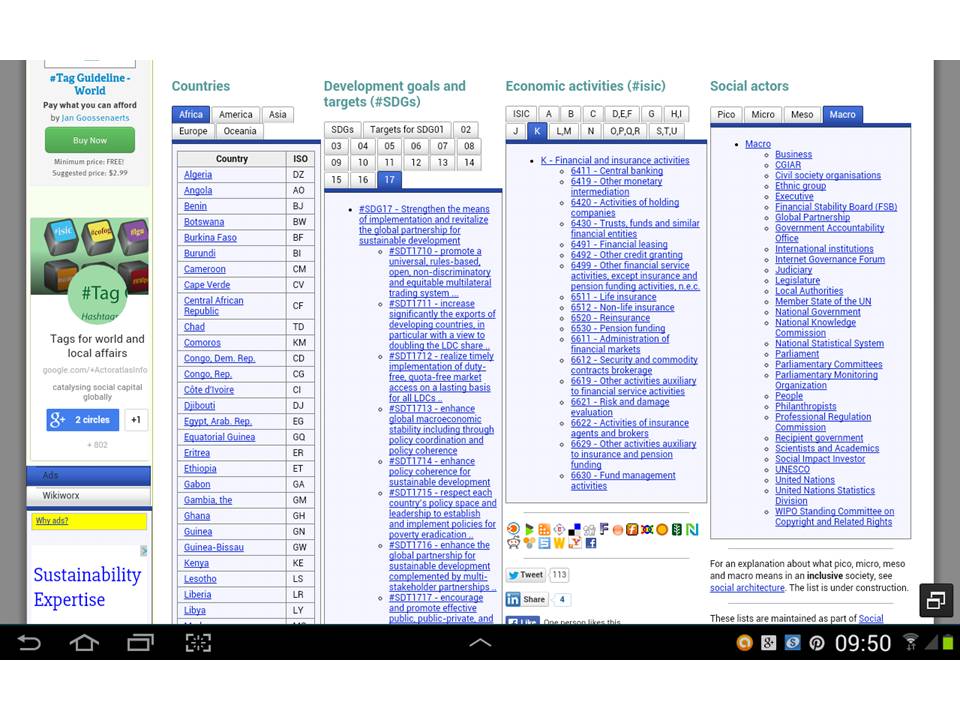Initiative Start: A first version of these requirements were created in the Summer of 2012 with the intention to start a Parliament Watch service in Belgium.
At the EPHack, January 24-26, 2014 the E-Parliament Tagging project idea was proposed and the requirements graph was adapted and further elaborated.
On the template: The debate graph is modeled after the
Volère Requirements Template, and serves the convergence on requirements awareness, solution decision and action for all stakeholders in the initiative. The reader is referred to the Volère template for guidance on the content of the various skeletons employed in the detail sections of the debate graph. The
Wikinetix website provides some further background on the way of working and supporting templates.
DebateGraph: The use of DebateGraph itself is explained and illustrated in the
blog of David Price.
#SDGpivot following the publication of proposed 17 sustainable development goals and 169 targets by the UN Open Working Group an hashtag pivot was published in the Actor Atlas. Below a screenshot of that page. By selecting tabs in the various tables, over 250.000 different hashtags can be configured in a matter of seconds.
